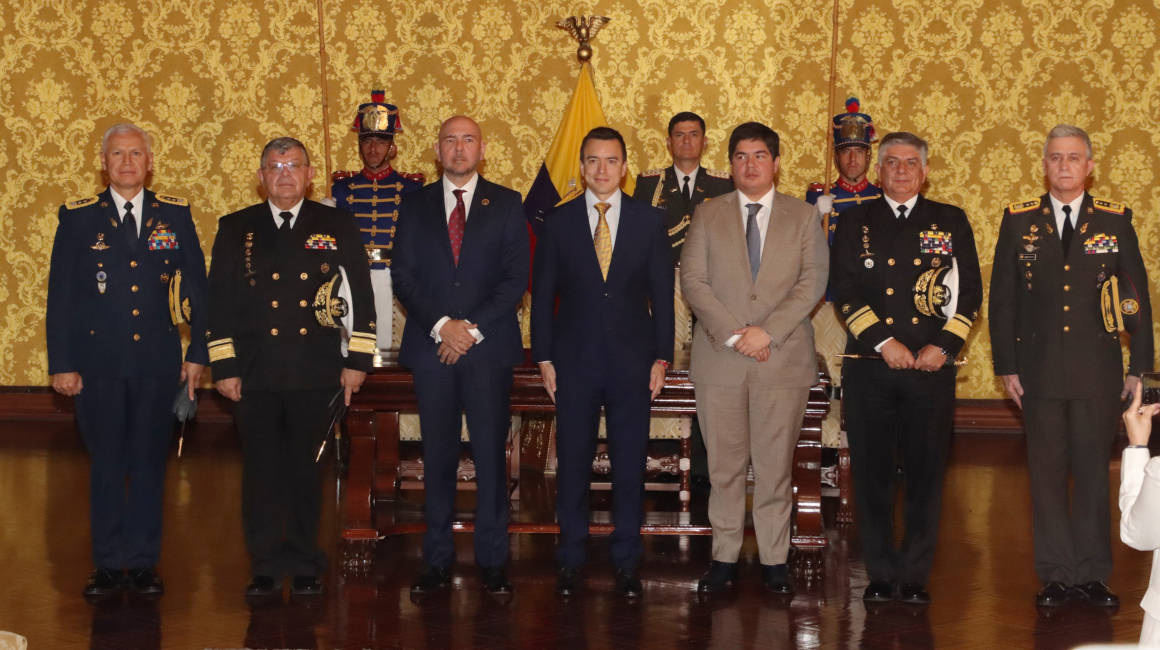Assembly allows Noboa to use Armed Forces against organized crime until Constitutional Amendment can be voted on by citizens.
In a historic move, the National Assembly of Ecuador, with an overwhelming 125 affirmative votes, approved a significant partial constitutional reform to Article 158 of the nation’s Constitution. This groundbreaking amendment grants the Armed Forces the authority to provide supplementary support to the National Police, signaling a united front in the battle against the escalating security crisis gripping the country.
The impetus behind this reform lies in the perceived need for a robust response to the surge in organized crime, drug trafficking, money laundering, arms and human trafficking, terrorism, illegal mining, extortion, intimidation, and overall organized criminal activities. Article 158 originally outlined the primary mission of the Armed Forces as the defense of sovereignty and territorial integrity, while internal protection and public order maintenance were exclusively assigned to the National Police. This constitutional adjustment expands the scope of the Armed Forces’ involvement, presenting a strategic tool to combat the multifaceted challenges faced by Ecuador.
Otto Vera, an assemblyman and the president of the Occasional Commission of Constitutional Amendments and Reforms, emphasized the reform’s potential to empower the president in utilizing additional state resources to defend the citizens and address the security crisis. The decision, however, is not without its critics, as concerns about potential human rights violations loom large.
Constitutional lawyer Ximena Ron expressed the necessity of caution, acknowledging the urgency to combat organized crime while insisting on safeguarding human rights. Ron stressed the importance of clearly defining each specified crime in the reform to prevent broad interpretations, ensuring that the involvement of Armed Forces remains an extraordinary measure rather than becoming normalized.
Multiple steps before action
The legislative journey of this reform is not concluded with the National Assembly’s approval. Per constitutional procedure, the reform now heads to the Constitutional Court for a meticulous analysis, where a 20-day period is allotted to ensure the legality and procedural integrity of the amendment.
Should the Constitutional Court issue a favorable ruling, the next step involves the National Electoral Council (CNE), which has 45 days to organize a crucial referendum, allowing the Ecuadorian citizens to voice their stance on this transformative constitutional change.
The crux of the reform lies in the redefined coordination functions between the Armed Forces and the National Police. According to the Assembly’s statement, this coordination will be subordinated to the president, directed towards combating the specified crimes, and extended to situations of serious internal commotion within the prison system.
Ximena Ron’s insistence on specificity in describing each crime becomes paramount in understanding the reform’s execution. The reform explicitly lists the crimes to which Armed Forces support may be directed, aiming to ensure that such involvement remains an extraordinary response tailored to the unique circumstances of each case.
If the referendum results favorably, activating the complementary support involves a meticulous series of steps. The General Commander of the Police must formally request support from the Armed Forces, providing a detailed context and situation that necessitate such intervention. Upon receiving this request, the President convenes the National Public and State Security Council to prepare a comprehensive report, establishing the relevance, cases, and scope of action where Armed Forces support is deemed necessary.
Based on this report, the Executive then issues a decree endorsing the Armed Forces’ support. The decree is expected to adhere to the principles of exceptionality, proportionality, and reasonableness, as well as international human rights standards of extraordinariness, complementarity, supervision, and regulation.


While this seems scary, what choices are there? Basically, the leak in the damn must be plugged from the wrong side. The demand side is the real problem.